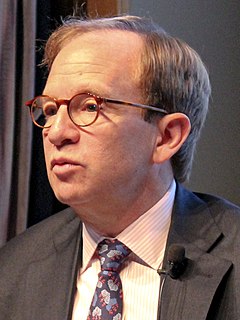A Quote by Anurag Thakur
The big issue is how much money can the government infuse for the capitalisation of the banks when we have quite a few private banks doing well. Does the government of India really require this number of public sector banks?
Related Quotes
In our election manifesto is: we keep the right to create money and to bring in circulation, for the cause of the government ... Those who do not share this view, reply us to the issue of paper money is for the banks, the government should stay out of the banking business. I agree with Jefferson's opinion ... and just like him I say again: the issue of money is a matter for the government and the banks should stay out of government activity.
Republican leaders have made clear they have no plans to use the power of government to stimulate the economy, invest in job creation and spur job growth. The Fed's plan is to give banks more money to finance the private sector job creation. But banks have ample cash now; they aren't lending, and the private sector is not creating the jobs. That is why we have 15 million people unemployed.
Temporary nationalization of the banks that are in very bad shape would mean basically that the government is the temporary owner. I always believe that the government should focus on its comparative advantages, and banking is not one of them. It should, therefore, if it nationalizes banks, sell them back to the private sector.
I think there's a disconnect between political leaders and young voters around a lot of things related to the private sector. For example, a lot of politicians continue to attack big banks. While I'm not a defender of big banks, my sense is younger voters have had generally pretty good experiences with banks.
I passionately disagreed with Treasury Secretary Hank Paulson's plan to bail out the banks by using a public fund called the Troubled Asset Relief Program (TARP) to help banks take toxic assets off their balance sheets. I argued that it would be much better to put the money where the hole was and replenish the equity of the banks themselves.
We survived for hundreds of years under the old banking structure. You'd have clearing banks, then merchant banks doing the racy stuff, and then building societies where you'd join a waiting list for a mortgage. But then banks started buying stockbrokers, doing mortgages, and you ended up with these big banking groups doing everything.

































